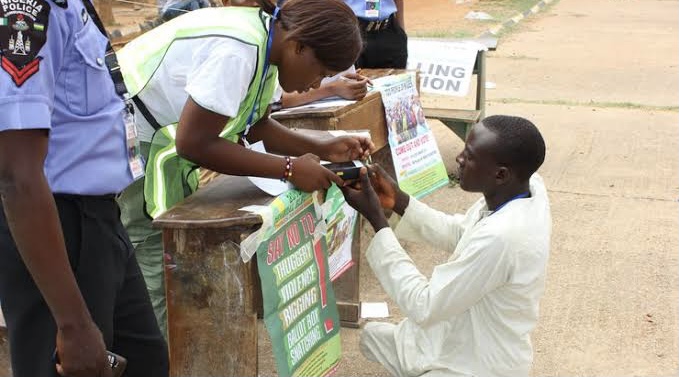A coalition of over 70 civil rights organisations under the aegis of Nigerian Civil Society Situation Room on Saturday raised some issues in their findings on the Area Council election in the Federal Capital Territory.
The Convener of NCSSR, Ene Obi, in preliminary statement on the election held in the FCT, expressed disappointment over commercialisation of votes during the Area Council election of the Federal Capital Territory, describing it as a dangerous signal for the future of democracy in the country.
They also expressed concern over the lack of assistive materials for persons with disabilities at the polling units and placement of the voting cubicles for persons with physical disabilities.
“There was inadequate access and lack of assistive materials for persons with disabilities in most polling units. In Karon-majigi, a special colony for PWDs, we received reports of a high number of PWDs using skates and the voting cubicles were too high for these sets of voters who had to place the ballot papers on their hands to vote”.
“There was vote buying and selling in some of the polling units. In a particular instance at PU 001, JAMB Secretariat, money was thrown into the crowd in the centre of the polling area leading to security personnel shooting in the air to disperse voters.
“In PU 001, Ministers Gate, Life Camp, there was apparent vote buying and selling. Reports from our networks of observers and partners showed late deployment of personnel and materials across the FCT. In most area councils, INEC officials arrived at an average time of 9.30am, except Bwari and Gwagwalada area councils where INEC personnel arrived on time.
“There was confusion over restriction and no restriction of movements caused by conflicting statements of the Nigeria Police issued on the eve of the election. In some places, citizens were seen queuing for fuel and others carrying on their business as usual.
“There was adequate and early deployment of security personnel in most polling units and malfunctioning of the Bimodal Voter Accreditation System causing delays in accreditation and voting.
“In most places, the fingerprints did not authenticate voters and there were lots of complaints on the facial detection. Although INEC personnel reported the escalation to technicians, there was a slow response to fixing the problem.


